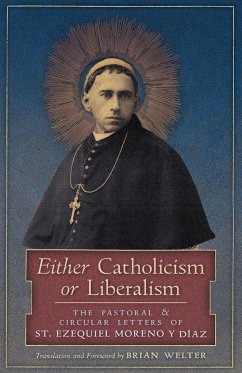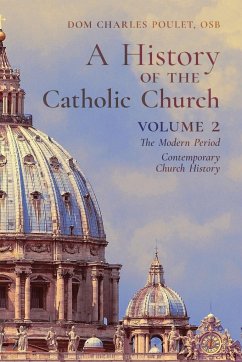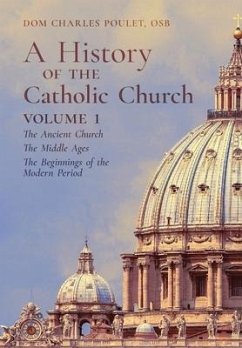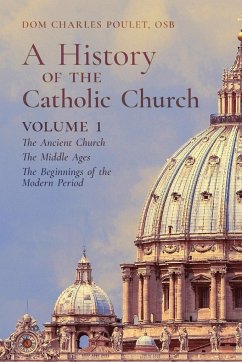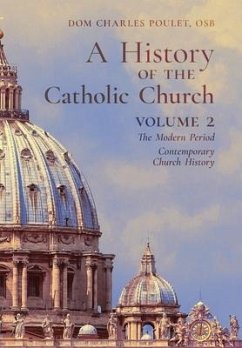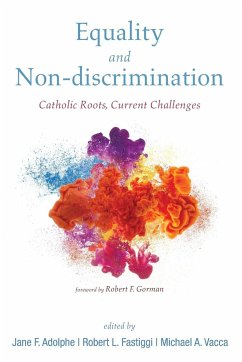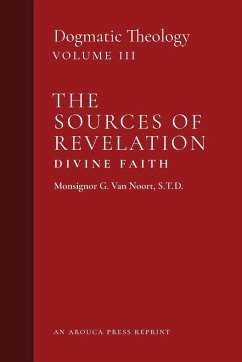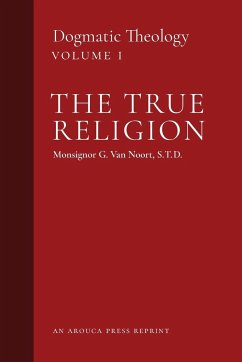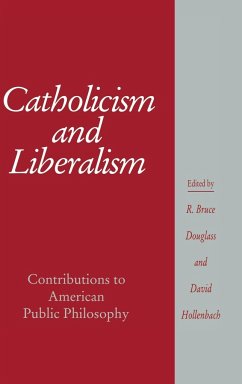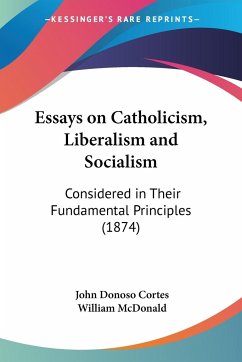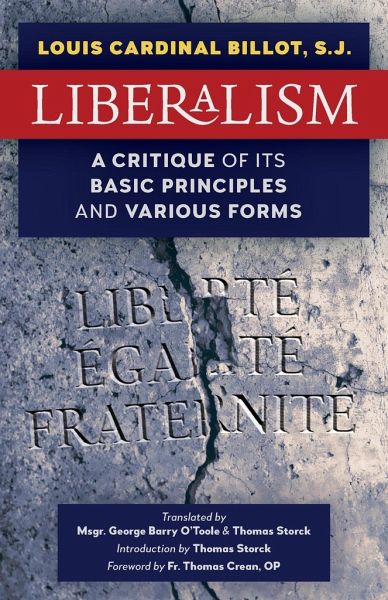
Liberalism
A Critique of Its Basic Principles and Various Forms (Newly Revised English Translation)
Versandkostenfrei!
Versandfertig in 1-2 Wochen
12,99 €
inkl. MwSt.

PAYBACK Punkte
6 °P sammeln!
This work puts into the hands of the public the first newly translated English edition of Louis Cardinal Billot's work on liberalism which was originally translated in 1922 by Msgr. George Barry O'Toole. This new edition features extensive footnotes and a foreword by Fr. Thomas Crean, O.P., and an extensive introduction written by Thomas Storck along with his revised translation. Excerpt from the Foreword "Louis Billot was one of the most theologically prominent champions of the principle of Christendom, in the early 20th century, and hence one of the keenest critics of the secularization of s...
This work puts into the hands of the public the first newly translated English edition of Louis Cardinal Billot's work on liberalism which was originally translated in 1922 by Msgr. George Barry O'Toole. This new edition features extensive footnotes and a foreword by Fr. Thomas Crean, O.P., and an extensive introduction written by Thomas Storck along with his revised translation. Excerpt from the Foreword "Louis Billot was one of the most theologically prominent champions of the principle of Christendom, in the early 20th century, and hence one of the keenest critics of the secularization of society by the Revolution. Born in France in 1846, he entered the Society of Jesus shortly after ordination. In 1885 he was made a professor of dogmatic theology at the Gregorian University in Rome, as part of the revival of the study of St Thomas Aquinas launched by Leo XIII with his encyclical of 1879, Aeterni Patris. Fr Gerald McCool SJ regards Billot as "the first really distinguished Neo-Scholastic theologian to be appointed to the Gregorian". In 1909, Pope Pius X made him a consultor to the Holy Office, and, two years later, a cardinal. He wrote authoritative studies on a range of questions, including the two-volume treatise of ecclesiology, De Ecclesia, of which this present work is a short extract. Mgr Joseph Clifford Fenton would later write that Billot "will most certainly be counted among the very ablest of all the theologians who labored for the Church during the early part of this century... The reader may find Billot's style somewhat fierce and rhetorical. He is reminded that the author wrote in Latin, a language which among its other merits confers an elevation of tone that is lost in translation. This should not prevent any serious student from seeing the merits of this short work. Its central message? We must have either Christendom or tyranny." - Fr. Thomas Crean, O.P. Excerpt from the Introduction "Cardinal Billot's discussion of liberalism, though contained in a book written in Latin a hundred years ago, deserves to be much better known than it is, for a grasp of the contents of this work will help the reader to understand the society around him much better than a perusal of political blogs or news sites will. Indeed, Billot explains well much of the trajectory of American political and cultural history, including much that has happened since the book was written. For if Americans - by which I mean here, citizens of the United States - wish to understand themselves and their country, they must above all reckon with the meaning and significance of liberalism. The term liberalism, however, is apt to be misleading, and especially so for American readers, for in the United States the term is used in a manner that is fairly unique in the world. Therefore it behooves American readers to set aside their previous understanding of the word and look at it afresh, as if they were learning a new word in a foreign language...." - Thomas Storck



